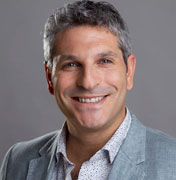Final Portrait
Impishly intelligent actor Stanley Tucci writes and directs this agreeable, miniature study of Alberto Giacometti and a young American writer, James Lord, who posed for the sculptor in his last days.

So, it’s a minor disappointment that Tucci doesn’t actually appear in the movie, though the man who played his brother in Tucci’s 1996 directing debut, Big Night, Tony Shalhoub, is there, playing Giacometti’s brother and faithful assistant Diego, almost as unconventional as his sibling.
Giacometti himself is played by Geoffrey Rush, who is one of the last great film hams around and perfect for adding actorly flamboyance to the role of the already eccentric artist.
He scratches away at his canvas, yelling theatrically every now and then, smoking up a storm, and staring at his whittled sculptures, challenged by his own work, like a man looking in a mirror and asking: ‘You talkin’ to me?’
As the rather wide-eyed Lord, Armie Hammer is stoic and funny, bringing humour and charm to a largely thankless reactive role, which involves shrugging helplessly at Giacometti’s wanton ways with wads of cash and pretending to be charmed by a visiting prostitute named Caroline (an irritating Clémence Poésy).
But there’s much to amuse and admire, particularly in the hues of Danny Cohen’s camera work that captures the dusty grey artistry of the Paris studio. ‘Mon grisaille’ is what Caroline affectionately calls Giacometti, my little grey one, but he does really spark into life in the prostitute’s winsome presence, much to the chagrin of his onlooking wife, played by the ever-engrossing Sylvie Testud.
For all the dust, the film’s quite a glossy study compared to the haunting power of Giacometti’s dwindled human forms. Rush’s full-on performances can unbalance a movie but in his jittery, nicotine-fuelled impatience here you get a real sense of artistic struggle, an oblique insight into amind struggling to depict the soul of mankind in an absurdist world. That’s not easy to do on screen without making people want to leave the room. Maybe there should have been more of this – if you don’t know the artist’s work, this film doesn’t take you into its dark heart, so visit the current Tate exhibition pronto – but that would disrupt the elegant lightness of Tucci’s directing.
If Tucci couldn’t get the lead role for himself, he’s still very much present, delivering the sort of direction that could only come from a skilled and sympathetic character actor used to stealing limelight from a supporting position. Thus the film relishes a bit of mugging, an egg-eating scene in a cafe, wine-drinking, ciggy histrionics, a twitch here, a tic there, a burning of sketches, a smattering of French 1960s pop – how lovely to hear France Gall’s Jazz à GoGo.
So while Giacometti himself is scratching, honing, whittling, swearing, smoking and gazing into the abyss, the film around him remains enjoyably upbeat, an indulgently romantic vision in which we mere mortals can but sit back and let the great artist get on with his work.


